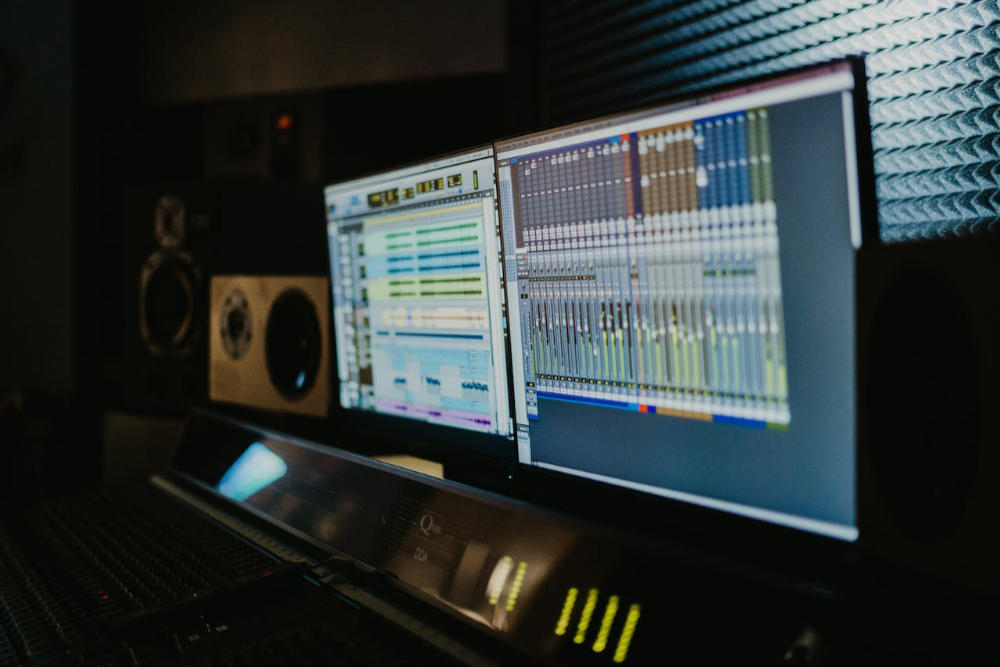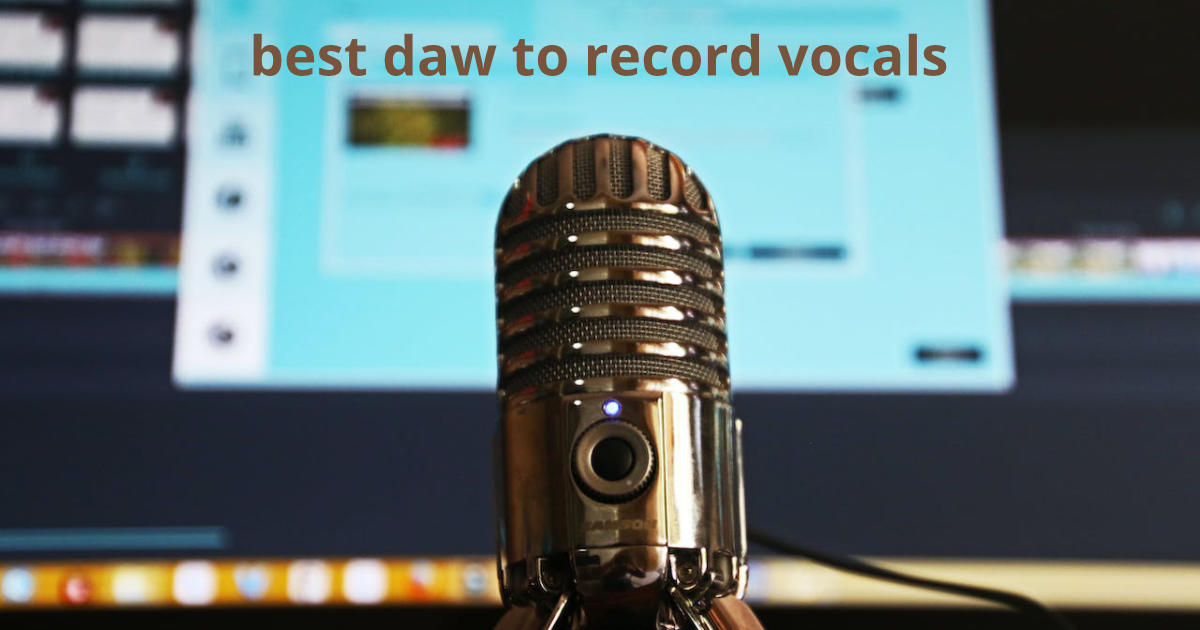Estimated reading time: 8 minutes
When it comes to recording vocals, choosing the right Digital Audio Workstation (DAW) is crucial. A DAW is a software application that allows you to record, edit, and mix audio. With so many options available in the market, it can be overwhelming to find the best DAW for recording vocals. This article will guide you through the process of selecting the ultimate DAW for professional vocal recording.
Table of contents
- Understanding the Importance of Choosing the Right DAW
- Key Features to Consider When Selecting a DAW for Vocal Recording
- Overview of Popular DAWs – FL Studio, Ableton Live, PreSonus Studio One, Steinberg Cubase, Cockos Reaper, Avid Pro Tools
- Comparing the Features and Functionalities of Each DAW
- The Role of an Audio Interface in Professional Vocal Recording
- Tips for Optimizing Your DAW for Vocal Recording Sessions
- Recommendations for Different Types of Vocal Recordings
- User Interfaces and Ease of Use – Finding a DAW That Suits Your Workflow
- Conclusion: Final Thoughts on the Best DAW for Vocal Recording
- FAQ
Understanding the Importance of Choosing the Right DAW
The choice of DAW can significantly impact the quality of your vocal recordings. A good DAW should provide a user-friendly interface, powerful editing capabilities, and a wide range of features tailored to vocal recording. It should also support third-party plugins and virtual instruments to enhance your recordings. By selecting the right DAW, you can ensure that your vocals sound professional and stand out in the competitive music industry.
Key Features to Consider When Selecting a DAW for Vocal Recording
Before diving into the details of popular DAWs, it is important to understand the key features to look for. Firstly, make sure the DAW supports real-time recording and editing, as this is essential for capturing the nuances of vocal performances. Secondly, check if the DAW offers advanced features such as pitch correction, time stretching, and vocal comping, which can greatly enhance the quality of your recordings. Lastly, consider the compatibility of the DAW with different audio interfaces, as this will determine the flexibility and reliability of your recording setup.
Overview of Popular DAWs – FL Studio, Ableton Live, PreSonus Studio One, Steinberg Cubase, Cockos Reaper, Avid Pro Tools
Now let’s take a closer look at some of the most popular DAWs in the market for vocal recording:
FL Studio
FL Studio is a versatile DAW that is widely used in the music industry. It offers a user-friendly interface and a vast array of features for recording acapella vocals. With its intuitive workflow and powerful mixing capabilities, FL Studio is a favorite among producers and sound engineers.
Ableton Live
Ableton Live is another industry-standard DAW that excels in both live performance and studio recording. It offers a unique session view that allows for improvisation and experimentation during vocal recording sessions. With its extensive library of software instruments and effects, Ableton Live is a great choice for electronic music producers.
PreSonus Studio One
PreSonus Studio One is known for its simplicity and efficiency. It provides a streamlined workflow and a range of professional features for vocal recording. Studio One’s intuitive drag-and-drop interface makes it easy to arrange and edit vocal tracks, making it a popular choice among beginners and seasoned professionals alike.

Steinberg Cubase
Cubase has been a staple in the music industry for decades. It offers a comprehensive set of tools for recording, editing, and mixing vocals. Cubase’s advanced features, such as VariAudio for pitch correction and Control Room for monitoring, make it a top choice for professional vocal recording.
Cockos Reaper
Reaper is a highly customizable DAW that offers a great balance between functionality and affordability. It provides a wide range of features for vocal recording, including multi-track recording, MIDI editing, and flexible routing options. Reaper’s lightweight design and extensive plugin support make it a popular choice for both beginners and experienced producers.
Avid Pro Tools
Pro Tools is considered the industry standard for professional audio production. It offers a comprehensive suite of tools for recording, editing, and mixing vocals. With its advanced editing features, high-quality plugins, and robust hardware integration, Pro Tools is the go-to DAW for many sound engineers and producers in the music industry.
In the next section, we will compare the features and functionalities of each DAW to help you make an informed decision.
Comparing the Features and Functionalities of Each DAW
To choose the best DAW for recording vocals, it is important to compare their features and functionalities. Here is a breakdown of the key aspects to consider for each DAW:
By analyzing these comparisons, you can identify the DAW that best suits your needs and preferences.
Third-Party Plugins and Virtual Instruments for Enhancing Vocal Recordings
Apart from the built-in features of a DAW, third-party plugins and virtual instruments can greatly enhance the quality and creativity of your vocal recordings. There are countless options available in the market, ranging from vocal processors and effects to realistic software instruments. Experimenting with different plugins and instruments can help you find your unique vocal sound and elevate your recordings to the next level.
Exploring Advanced Editing Features and Spatial Audio Capabilities
In addition to basic recording and mixing features, some DAWs offer advanced editing capabilities and spatial audio functionalities. These features allow you to manipulate and shape your vocal recordings in unique ways. From precise pitch correction to immersive surround sound, these tools can add depth and professionalism to your vocal tracks.
| DAW | Real-Time Recording/Editing | Pitch Correction | Vocal Comping | Compatibility | User-Friendliness |
|---|---|---|---|---|---|
| FL Studio | Yes | Yes | Yes | Windows/macOS | Moderate |
| Ableton Live | Yes | Yes | Yes | Windows/macOS | Moderate |
| PreSonus Studio One | Yes | Yes | Yes | Windows/macOS | High |
| Steinberg Cubase | Yes | Yes | Yes | Windows/macOS | Moderate |
| Cockos Reaper | Yes | Yes | Yes | Windows/macOS | High |
| Avid Pro Tools | Yes | Yes | Yes | Windows/macOS | Moderate |
The Role of an Audio Interface in Professional Vocal Recording
An audio interface is an essential component in any professional vocal recording setup. It acts as a bridge between your computer and the microphones or instruments you use for recording. A good audio interface should provide high-quality analog-to-digital conversion and low-latency monitoring. It is important to choose an audio interface that is compatible with your DAW and suits your recording needs.
- What Does Quantize Mean in Music – Unlocking the Rhythm
Tips for Optimizing Your DAW for Vocal Recording Sessions
To ensure smooth and efficient vocal recording sessions, here are some tips to optimize your DAW:
- Close unnecessary applications and processes to free up system resources.
- Set appropriate buffer sizes to minimize latency during recording and monitoring.
- Organize your vocal tracks using color coding and naming conventions for easy navigation.
- Utilize keyboard shortcuts and macros to streamline your workflow.
- Regularly update your DAW and plugins to benefit from bug fixes and new features.
By following these tips, you can maximize the potential of your DAW and focus on capturing the best vocal performances.
Recommendations for Different Types of Vocal Recordings
The requirements for vocal recordings can vary depending on the genre and style of music. Here are some recommendations for different types of vocal recordings:
- Music Production: For general music production, DAWs like FL Studio, Ableton Live, and Studio One offer a wide range of features and flexibility.
- Electronic Music: Ableton Live is particularly suited for electronic music production, with its session view and extensive library of software instruments and effects.
- Sound Effects: Reaper’s customizable interface and powerful editing capabilities make it ideal for creating and manipulating sound effects.
- Voiceover and Podcasting: Pro Tools is widely used in the film and television industry for voiceover and podcast production, thanks to its advanced editing and mixing features.
Choose a DAW that aligns with your specific recording needs to achieve the best results.
User Interfaces and Ease of Use – Finding a DAW That Suits Your Workflow
The user interface and ease of use of a DAW play a crucial role in your recording workflow. Some DAWs offer a clean and intuitive interface with drag-and-drop functionality, while others provide a more complex layout with advanced tools and features. It is important to find a DAW that aligns with your workflow and allows you to focus on the creative process without getting bogged down by technicalities.
Conclusion: Final Thoughts on the Best DAW for Vocal Recording
In conclusion, choosing the best DAW for recording vocals depends on your specific needs and preferences. Each DAW has its own strengths and weaknesses, so it is important to evaluate them based on the key features, functionalities, and compatibility with your recording setup. Whether you’re a professional sound engineer or a beginner in the music industry, selecting the right DAW is essential for achieving professional-quality vocal recordings.
Related Posts
- How Loud Should Vocals Be in a Mix? Finding the Perfect Balance
- How to Start Making Music? A Beginner’s Guide
- Best Sound Cards for Music Production: Find the Perfect Audio Interface
- How to use Ableton Live 11: A Comprehensive Guide for Music Producers
- What is a Vocal Chain? Everything You Need to Know to Sound like a Pro
- What is a Vocal Run? Unleashing the Magic
- What is a De-Esser and How Does It Work?
- What Does a Recording Engineer Do? Behind the Soundboard
- The Beginner’s Guide on How to EQ Vocals for Stellar Sound
- How to Compress Vocals? A Step-by-Step Guide to Perfectly Compressed Vocals
- What Is Gain in Audio? Understanding Gain in Simple Terms
- What is a Vocalist? Everything You Need to Know
- Pro Tools Alternative: 4 Game-Changing Alternatives That Will Revolutionize Your Music Production
- How to Record on Pro Tools: A Comprehensive Guide to Recording Like a Pro
- Best Vocoder Plugin: Explore 13 Top Options For Adding a Futuristic Touch to Your Music Productions
- Best Monitor for Music Production: Discover the key factors to consider
FAQ
The best DAW for recording vocals depends on preferences, but popular options include Pro Tools for industry standards, Studio One for simplicity, and Ableton Live for electronic versatility.
Yes, most DAWs support third-party plugins, enhancing capabilities in effects, instruments, and processors, offering flexibility across different software.
An audio interface is crucial, ensuring high-quality signal conversion and low-latency monitoring, significantly impacting recording quality and professional outcomes.
Yes, many DAWs offer trial versions or limited free editions, enabling users to test functionalities and workflows before making a purchase.
Beginner-friendly DAWs like GarageBand (for Mac) or Studio One offer intuitive interfaces, simplifying recording, editing, and mixing for newcomers to music production.
